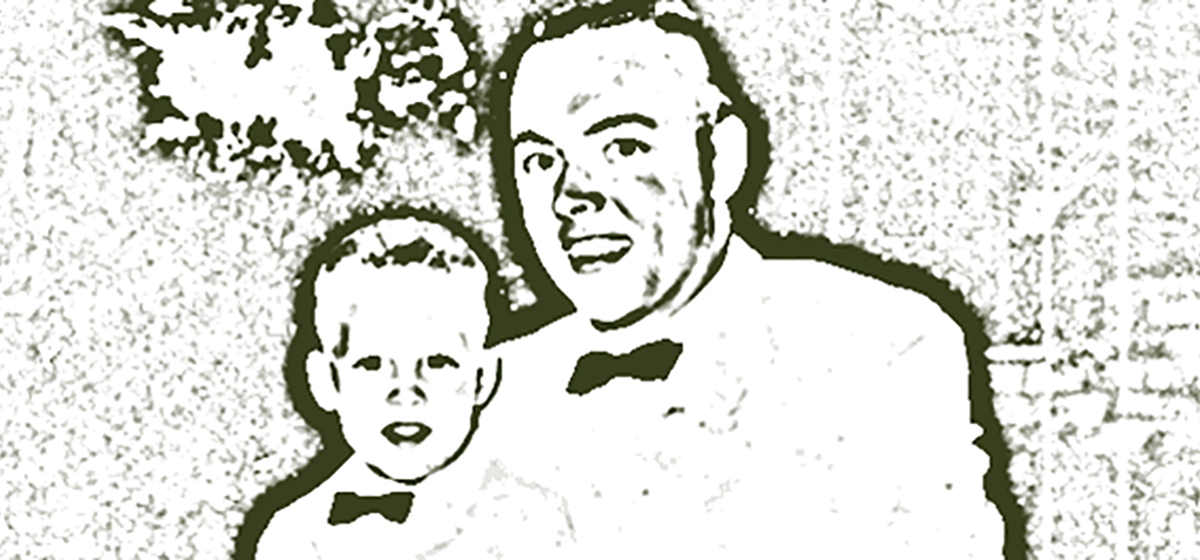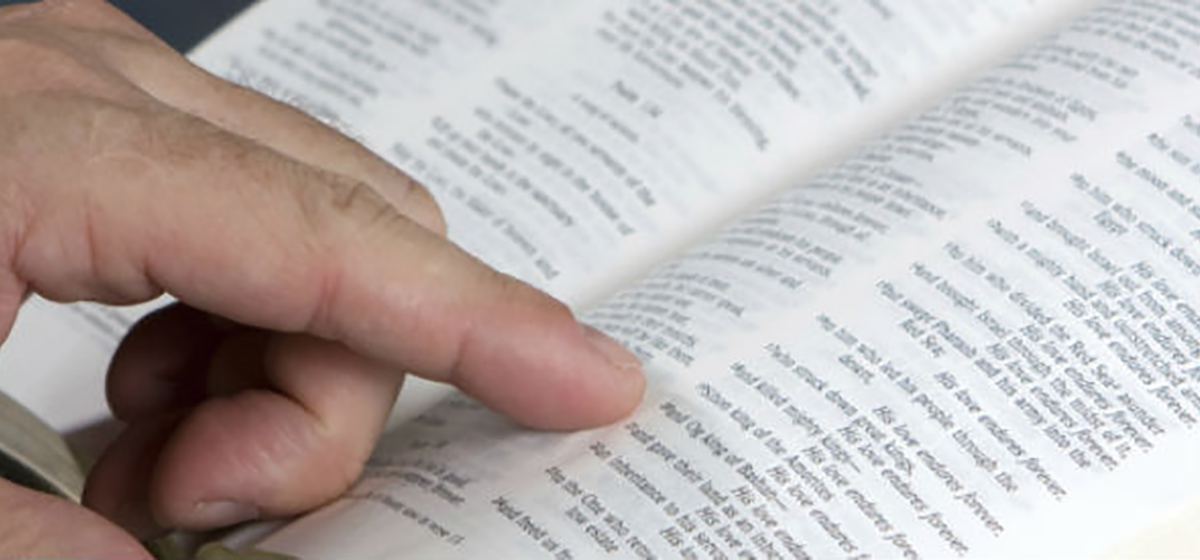Perhaps you have heard of King Josiah. Only eight-years-old when he ascended to the kingship of Judah in approximately 640 B.C., scripture indicates he began to seek the Lord at age 16, initiated a purge of idolatry from his kingdom starting around age 20, and – while some of his leaders were cleaning out the temple around age 26 – rediscovered the apparently lost Book of the Law. As striking as the reality that the Book (most likely what we now know as the Torah, or the first 5 books of the Old Testament) had apparently been lost and forgotten among the idolatrous clutter in the temple, even more striking was Josiah’s response when he heard what was written in it.
As his secretary read the book aloud in the presence of the king, the Josiah tore his robes and wept. The words touched his heart, and he humbled himself before the Lord. Then he called his top leaders, and they assembled “all the people from the least to the greatest” at the temple, where the king then read to them all the words in the “Book of the Covenant.” He then personally renewed the covenant in the presence of the Lord and in front of all the people “to follow the Lord and keep his commands, regulations, and decrees with all his heart and soul, and to obey the words of the covenant written in the book.”
Then, Josiah had everyone in the capital city make the same pledge, and they continued to work together to cleanse the land and their lives and obey the Lord wholeheartedly throughout his reign.
Yet, within one generation after Josiah’s death, the nation of Israel returned to their former evil ways. Why?
We know that three of Josiah’s sons occupied the throne during the final years of the nation of Judah prior to the destruction of the nation as a whole and the city of Jerusalem by the Babylonians. The first son was deposed after a brief three-month reign and replaced by a second son of Josiah, Jehoiakim. Including the third son, Zedekiah, all three of Josiah’s sons were summarized as evil kings, unlike their father.
Jehoiakim began his reign at age 25 and reigned 11 years. Since his father died around age 39, Jehoiakim must have been born when Josiah was about 14, which means he must have witnessed his father’s devotion to the Lord, the discovery of the Book of the Law when the young Jehoiakim was around 12-years-old or so, and all the revival that accompanied that honorable season in the nation of Judah’s history. However, like his brothers, Jehoiakim did not choose his father’s path. He turned away from the Lord, and even mistreated one of the Lord’s most well-known prophets, Jeremiah.
After some years of ministry, the Lord directed Jeremiah to “take a scroll and write on it all the words I have spoken to you concerning Israel, Judah and all the other nations from the time I began speaking to you in the reign of Josiah until now.” In other words, he was instructed to write down much of what we now call the Book of Jeremiah in the Old Testament. So, Jeremiah dictated and his secretary, Baruch, wrote everything down. Later, during a religious festival, Baruch went to the temple and read the words to all the people at the temple in Jerusalem.
When some of the leaders heard him speaking, they invited Baruch to sit down with them in private in the secretary’s room in the royal palace and read the words to them there. When they heard what had been written, they looked at each other in fear and realized that King Jehoiakim needed to hear it, too. They also asked Baruch to clarify, “How did you write all this? Did Jeremiah dictate it?”
“Yes,” Baruch answered, “he dictated all these words to me, and I wrote them in ink on the scroll.”
At that point, the leaders took the scroll from Baruch, filed it in the secretary’s office, and reported everything to the king, who asked one of his officials to retrieve the scroll and read it to him.
However, unlike his father, Jehoiakim responded completely differently when he heard the words of the Lord given to Jeremiah. While sitting in his apartment in front of a fire and surrounded by his officials, whenever a few columns of the scroll were read, the king cut them off with a scribe’s knife and threw them into the fire until the whole scroll had been read and burned. No tearing of his robes, no weeping, no humble response by the king or his attendants. In fact, the king sent for Jeremiah and Baruch to have them arrested, “but the Lord had hidden them.”
Not only did He hide them, but He instructed Jeremiah and Baruch to rewrite the scroll and add to it, including a message to Jehoiakim that he and his family would be severely punished for their wickedness in disrespecting the words of the Lord.
How could these so diametrically opposed responses happen in the span of one generation? How could a father respond to the Lord and His Word one way, and lead his people in receiving blessings by God through faithful obedience, but his children respond so oppositely? How could people who grew up in a household and nation so graciously blessed by the Lord then turn so callously against Him and disrespect His Word?
Whatever the reasons, it happens, and has happened repeatedly throughout history. Following King Solomon’s apex of a consolidated kingdom, riches and splendor, and an unusual season of middle eastern regional peace, his nation was divided and wildly disobedient within one generation. King Hezekiah led the nation in revival during his reign, and yet within one generation his son, Manasseh, led the nation in more grievous evils than almost any other Judean king.
I grew up in small town just a few decades ago. In my early years, the Sabbath was observed by almost every business except the two restaurants that served the after-church lunch crowds, scripture reading and public prayer and patriotic observances were part of many school and public events, nearly every boy and man in town carried a knife in their pocket, many pick-up trucks in the campus parking lot at our high school regularly had guns in their gun racks, and anyone who caused trouble at school was certain to get paddled with a wooden paddle either by the teacher or the principal (and sometimes both), and most likely another paddling by belt, switch or hand when they got home. Now, just one generation later, these activities are considered extreme, possibly loony, and even unacceptable by many.
And those are just some of the little things. Biblical morality in particular, the Word of God as a whole, and a Christian worldview – these are no longer generally respected, but privately disrespected and even publicly disputed and refuted by many. Often, these differences can be attributed to leadership, since most people follow where they are led.
But, a deeper question is why do some children follow paths exactly opposite those of their parents? Is the primal need for differentiation so strong that casting aside good for evil – or evil for good – seems better than following the footsteps of others?
Turning positive seems to make more sense, which helps explain why kings like Josiah may have cast aside evil for good. But, turning toward evil in the midst of good seems more perplexing. Most of us know families that have maintained a generational consistency of either good or bad character, with a few errant sheep along the way who have broken free of historical family patterns for better or worse. But, there does also seem to exist a repetitive seesaw pattern of back and forth movements from faithfulness to unfaithfulness, good to evil, and blessings to curses.
A key sign of the direction people will tend toward is their response to hearing the Word of the Lord. Those who respond with humility, faith, and respect tend toward godliness, while those who respond with arrogance, disbelief, and disrespect tend toward evil. And then, depending on the response, the course of individuals, families, and nations can change dramatically in one generation.





